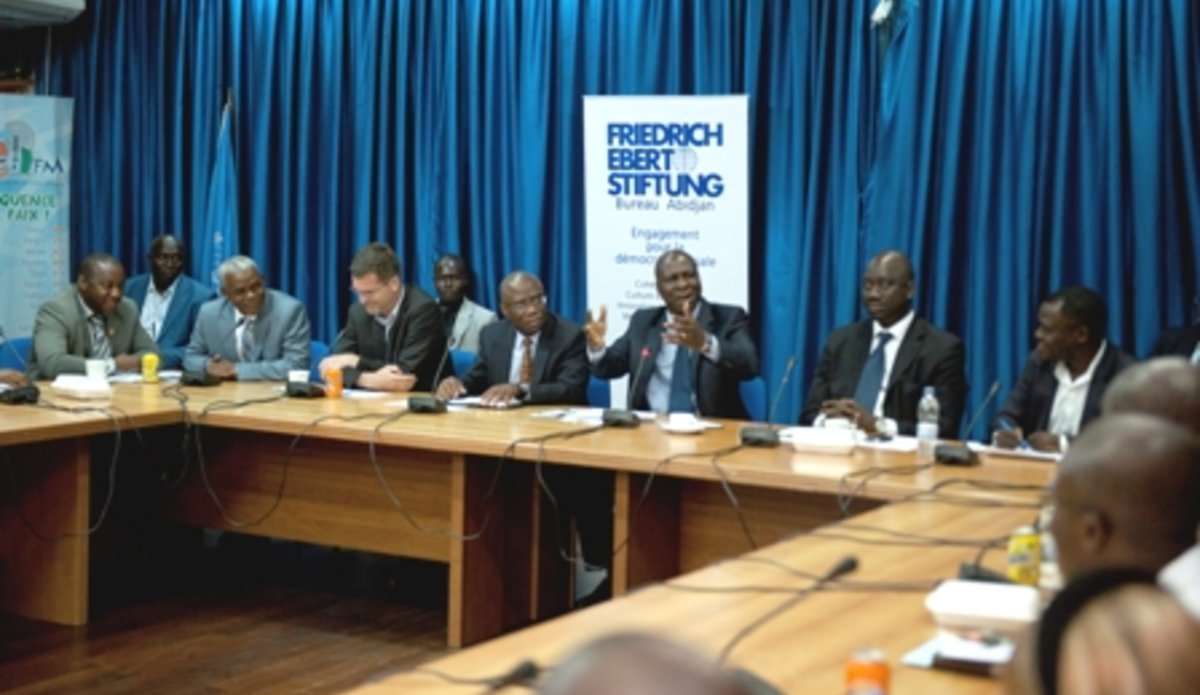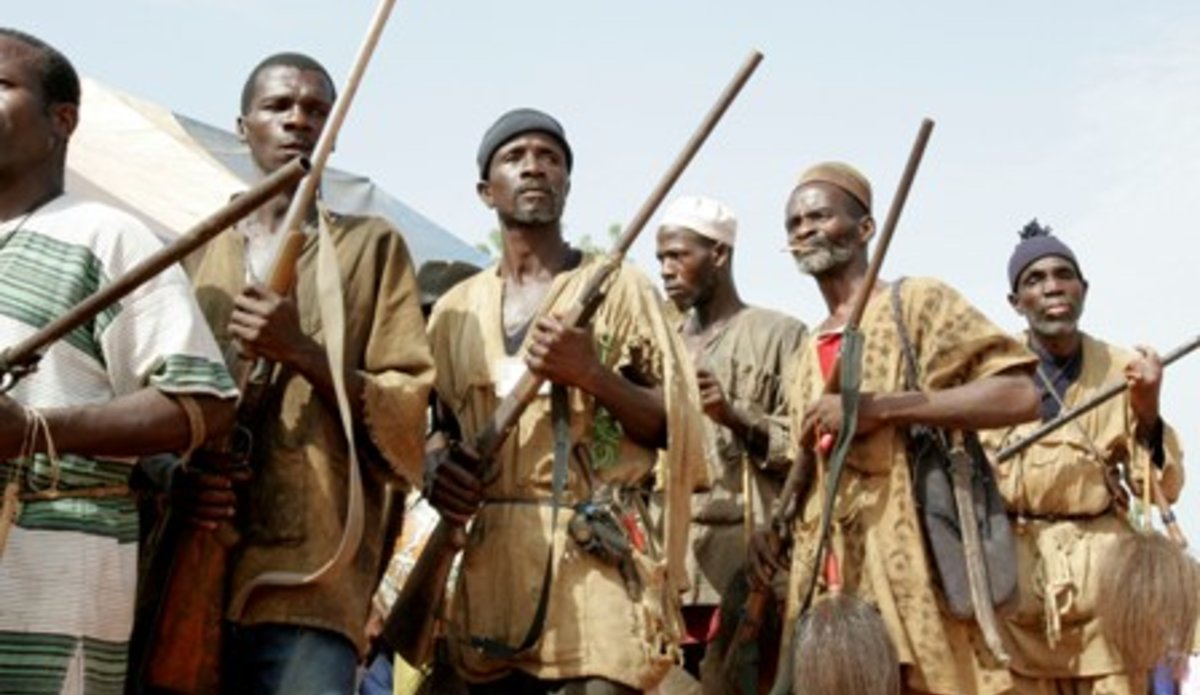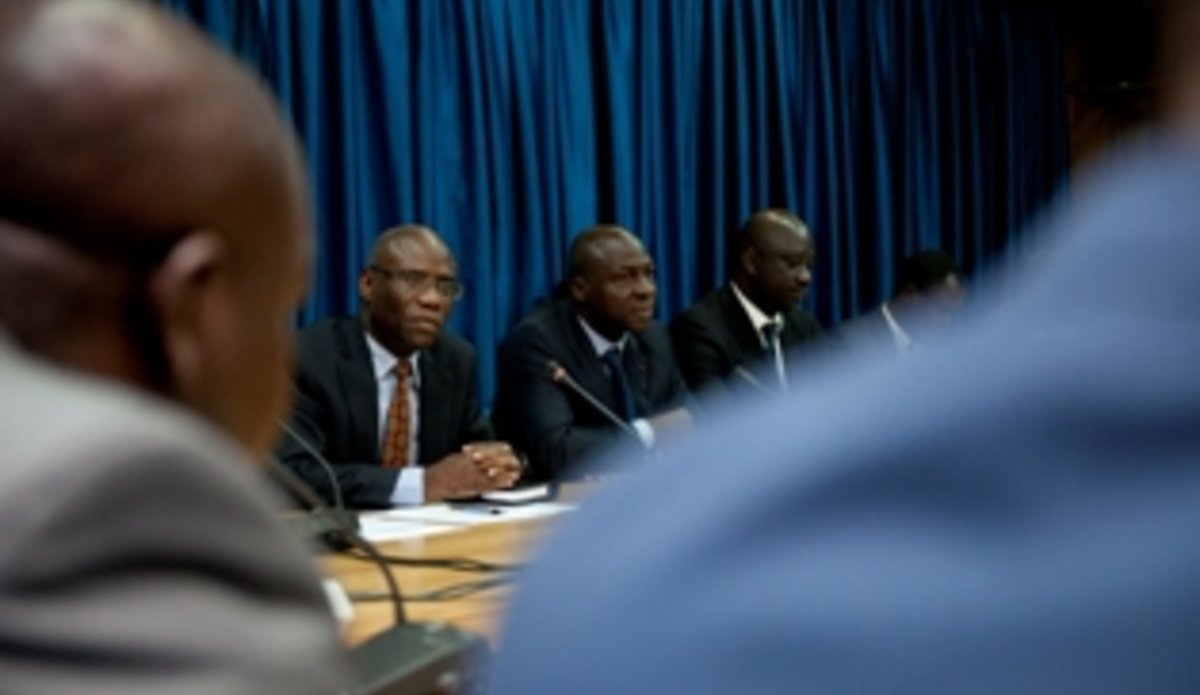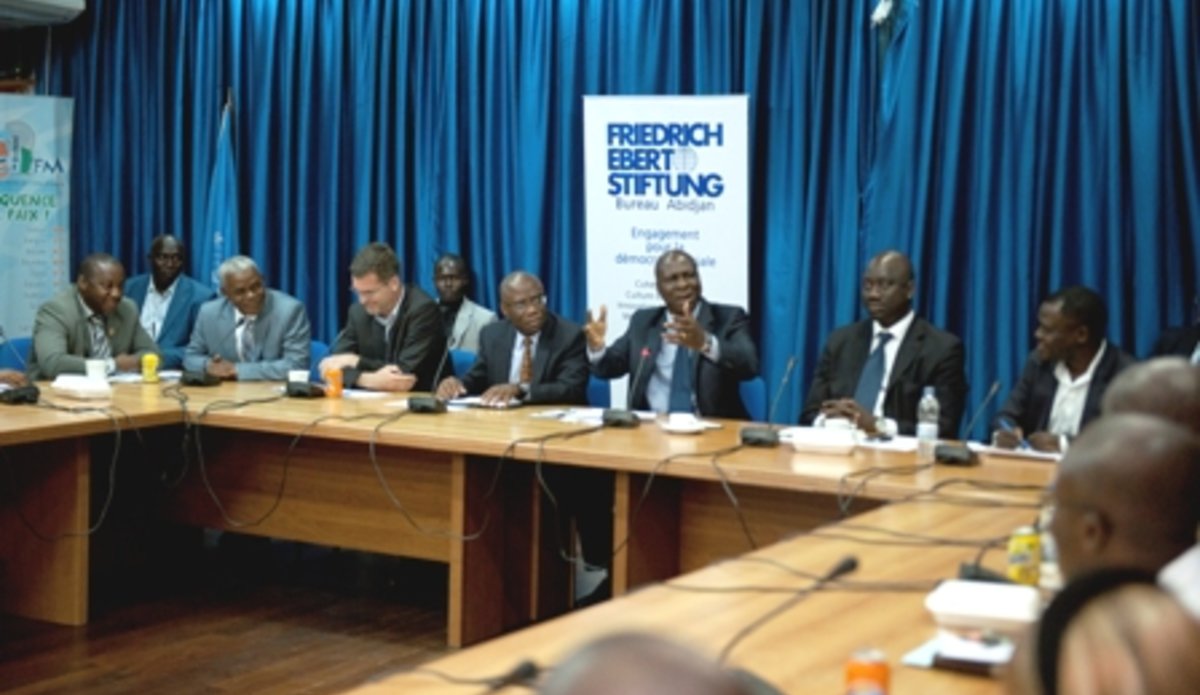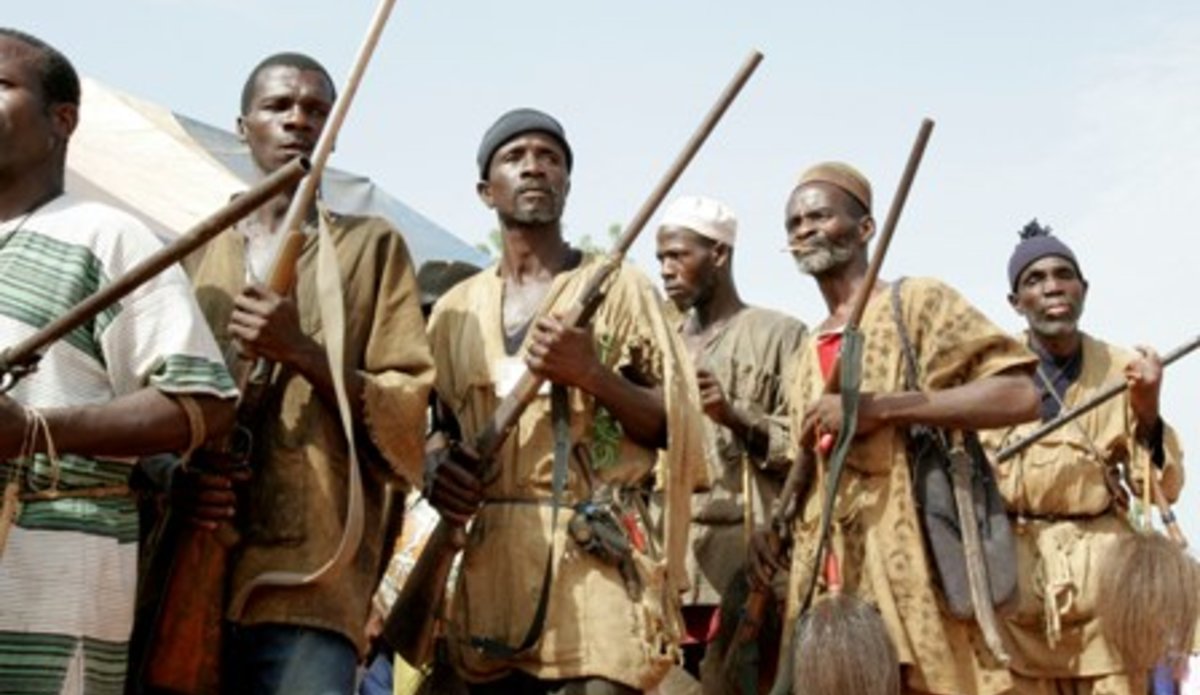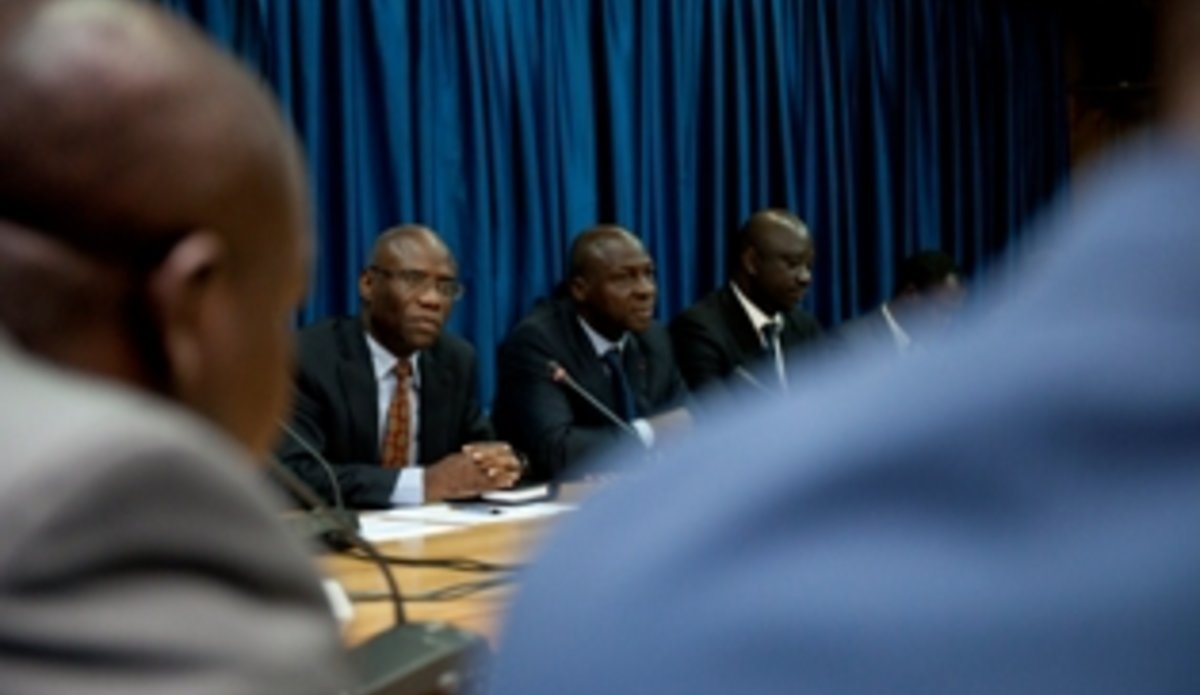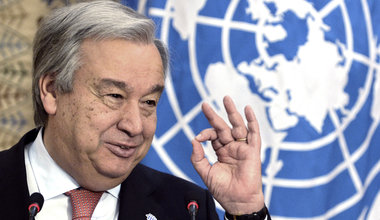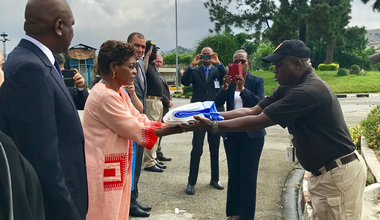The problem of Dozos and SSR discussed during exchanges between UNOCI, the Ivorian Government, civil society and elected officials
The Deputy Special Representative of the United Nations Secretary-General for Côte d'Ivoire, Arnauld Akodjénou, on Tuesday, 6 May 2014, presided over the 16th edition of a monthly debate on "The problem of Dozos and Security Sector Reform" organised by the United Nations Operation in Côte d'Ivoire (UNOCI) in partnership with the German Friedrich Ebert Stiftung Foundation at the UN Mission's headquarters in Abidjan.
The Chief of Staff of the Ivorian Ministry of the Interior, Bamba Cheikh Daniel made a presentation on the subject before wide-ranging discussions with representatives of political parties and civil society, elected officials and security experts.
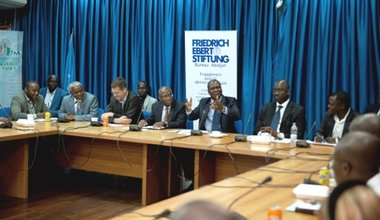
Mr. Bamba thanked UNOCI for having created a platform to discuss an issue which has had many false starts including an attempt to implement some sort of regulation in 1999 to contain the problem of Dozos (traditional hunters) following a coup d'Etat. More than 12 years later, the problem still remains and has become even more difficult and for Mr. Bamba was now vital to tackle it in the light of internal proposals of the Ministry of the Interior. "Everyone should understand that the Government takes this issue very seriously and the proposed solutions, if quickly implemented, could result in a peaceful electoral environment, especially as the Dozos themselves are involved. They have accepted the proposal to have only one chief and one association. This has all been agreed and we are simply waiting for the funds in order to start the process," said Mr. Bamba.
In his presentation, Bamba Cheikh Daniel, outlined the history of Dozos, while recalling that they were not unique to Côte d'Ivoire. They can be found in Guinea, Senegal, Sierra Leone, Mali, Niger and the north of Ghana. He explained that although the original role of these traditional hunters was linked to learning about the flora and fauna and medicinal plants in their respective countries, this has since been democratised. In addition, faced with the insufficient security support provided by the State, Dozos were asked or decided themselves, to provide security to the population, said Mr. Bamba. As a result they can now be found all over Côte d'Ivoire and have often been used for political reasons, he added. "I have noticed that Dozos are now being demonised and that people ignore the history of their presence in different parts of the country and they themselves have allowed this situation to continue. Today people now feel that it is vital to quickly resolve this problem. But we have explained that this is not the way to proceed and that we first need to sensitise, inform and provide the necessary logistic support for this project. The Dozos, with regard to identification and the reintegration process, understand that the State has taken charge of the situation and the problem will be solved. Discussions with participants are often heated. However there is no really disagreement and we are all agreed that the problem has to be resolved before the forthcoming elections," concluded Mr. Bamba.
The Deputy Special Representative of the United Nations Secretary-General for
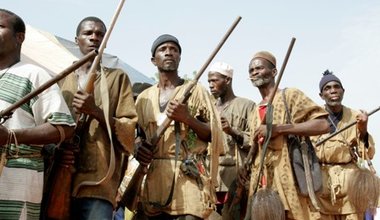
Côte d'Ivoire, Arnauld Akodjénou, who opened the discussions, stated that the issue of Dozos was a phenomenon which causes concern. He welcomed the fact that the Ivorian Government had decided to tackle the issue in an open and transparent manner. The United Nations Mission is strongly involved in Security Sector Reform with regard to its implementation, he said. "While implementing this reform and strategy, there is the situation of the Dozos which is not an epiphenomenon but a daily reality. We know that the Government is working on the issue and today was an opportunity to hear what the Government intends to do regarding the Dozos. We have a coherent project on the table and discussions will be held with the authorities to see how we can translate it into reality. Not only as UNOCI but also how other partners can help to reinforce what the Government is doing," said Mr. Akodjénou.
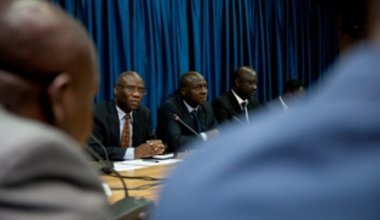
He expressed the hope that the project will be supported by a good communication strategy with all the concerned actors - the Dozos, the concerned organisations, the population , in order to ensure an efficient implementation. UNOCI will continue to support the Ivorian Government to ensure this important activity is successfully carried out as part of the reform of the security sector for the benefit of the people," Mr. Akodjènou concluded.
 UN
UN United Nations Peacekeeping
United Nations Peacekeeping
